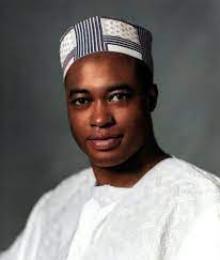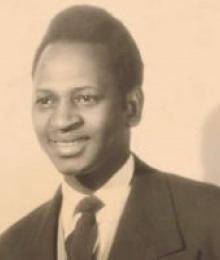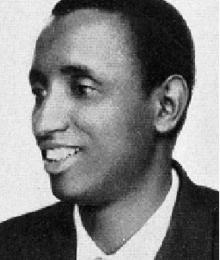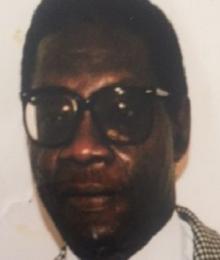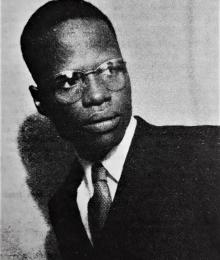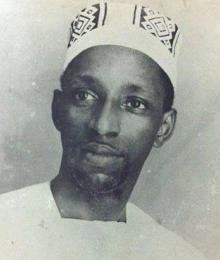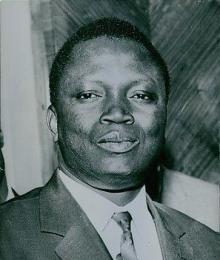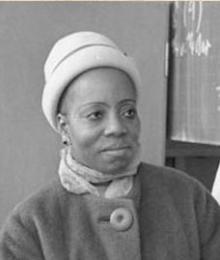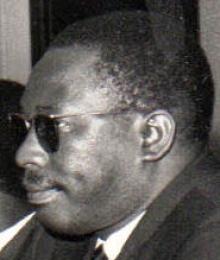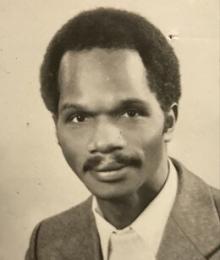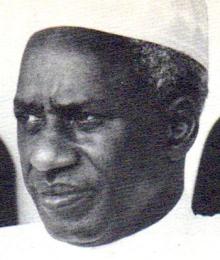
Ismaël Touré was a prominent Guinean political figure, born around 1925 in Faranah and died on July 8, 1985, in Kindia. As the half-brother of Ahmed Sékou Touré, the first president of independent Guinea, he played a crucial role in shaping and developing the post-colonial Guinean state. Trained in meteorology in Paris, Ismaël Touré held numerous strategic ministerial positions throughout his career, notably as Minister of Economy and Finance.
His exceptional longevity in government, from independence in 1958 until his death in 1985, testifies to his considerable influence on the national political scene. However, his career ended tragically during the political upheavals that followed his half-brother's death, illustrating the challenges and contradictions of post-colonial state-building in West Africa.
Introduction
Ismaël Touré, born around 1925 in Faranah, Upper Guinea, and died on July 8, 1985, in Kindia, was an iconic figure in 20th century Guinean politics. As the half-brother of Ahmed Sékou Touré, the first president of independent Guinea, Ismaël played a crucial role in shaping and developing the post-colonial Guinean state. His career, marked by exceptional longevity in government, testifies to his considerable influence on the national political scene.
Education
Born into an influential family in Faranah, Ismaël Touré benefited from a privileged education for his time. His academic journey led him to Paris, where he trained in meteorology. This scientific background, uncommon among African political leaders of his generation, would later influence his vision for Guinea's economic development.
During his stay in Paris, Ismaël rubbed shoulders with other future African leaders, notably his compatriot Boubacar Telli Diallo. These years of study in France undoubtedly contributed to shaping his political and economic vision, oscillating between Western influences and his country's desire for independence.
Professional Career
After completing his meteorology training in Paris, Ismaël Touré returned to Guinea in 1950. His technical expertise was quickly put to use in service of his native country. In 1956, he took charge of the meteorological station in Kankan, an important city in Upper Guinea.
This technical position served as a springboard for his involvement in local politics. The same year, he was elected to the municipal council of Kankan, marking his first steps into the political arena. This dual role as technocrat and politician would characterize his entire career.
Political Career
Ismaël Touré's political ascent accelerated rapidly. In 1956, he was elected territorial councillor of his native prefecture, Faranah. This position allowed him to build an important political network at both local and national levels.
The year 1957 marked a turning point in his career with his appointment as Minister of Public Works. This ministerial responsibility, obtained while Guinea was still under French tutelage, demonstrates his growing influence within the Guinean independence movement.
In the same year, Ismaël Touré distinguished himself on the international stage by leading the Guinean delegation at the first meeting of the Organization for Solidarity with the People of Africa and Asia (OSPAA) in Cairo. This diplomatic experience reinforced his stature as a statesman and broadened his political horizons beyond national borders.
Minister
After Guinea's independence in 1958, Ismaël Touré became an indispensable pillar of successive governments led by his half-brother, Ahmed Sékou Touré. His longevity within the Guinean executive was exceptional: with the exception of a brief period in 1979, he held top ministerial posts until the end of his life.
Over the years, Ismaël Touré accumulated various strategic ministerial portfolios:
- Minister of Posts, Telegraph and Telephone
- Minister of Public Works and Transport
- Minister of Economic Development
- Minister of Finance
In 1972, his career reached its peak with his appointment as head of a super-ministry of Economy and Finance. This key position gave him oversight of crucial sectors such as industry, mining, energy, banking, development, and public works. This concentration of economic powers in his hands made him one of the most powerful men in Guinea, second only to the president.
In his ministerial functions, Ismaël Touré played an important role in defining Guinean economic policy. He was notably the architect of the non-aggression protocol between members of the Economic Community of West African States (ECOWAS), signed in April 1978.
Death
The end of Ismaël Touré's career was brutal and tragic. After the death of his half-brother, President Ahmed Sékou Touré, on March 26, 1984, he found himself in rivalry with Prime Minister Louis Lansana Beavogui for succession to power.
However, on April 3, 1984, a military coup led by Colonel Lansana Conté upended the Guinean political chessboard. Ismaël Touré, like many other dignitaries of the former regime, was arrested.
On July 8, 1985, under controversial circumstances, Ismaël Touré died in Kindia. His death, which occurred in the context of an alleged coup attempt, was accompanied by the execution of several other close collaborators of Sékou Touré, including Seydou Keita, Siaka Touré, and Moussa Diakité.
Private Life
Although his public life was widely documented, Ismaël Touré's private life remains relatively unknown. It is known that he came from an influential family in Faranah and maintained close ties with his half-brother, Ahmed Sékou Touré. These family relationships undoubtedly played an important role in his political rise and longevity in power.
Despite his status as a statesman, Ismaël Touré seems to have maintained a strong attachment to his native region of Upper Guinea. His initial involvement in local politics in Kankan and Faranah testifies to this regional anchoring.
Conclusion
Ismaël Touré remains a complex and controversial figure in Guinean political history. His journey illustrates the challenges and contradictions of post-colonial state-building in West Africa. On one hand, his technical training and international experience contributed to the modernization of the Guinean administration. On the other, his longevity in power and concentration of responsibilities fueled criticisms of the authoritarian nature of Sékou Touré's regime.
Ismaël Touré's legacy remains ambivalent. While he undeniably marked Guinea's economic and political history, his tragic end serves as a reminder of the fragility of authoritarian regimes and the dangers of power concentration. His journey raises important questions about the role of technocratic elites in the development of young African nations and the challenges of governance in a post-colonial context.
Today, as Guinea continues to navigate between the imperatives of economic development and democratic aspirations, the story of Ismaël Touré offers valuable lessons on the successes and pitfalls of nation-building in Africa.











